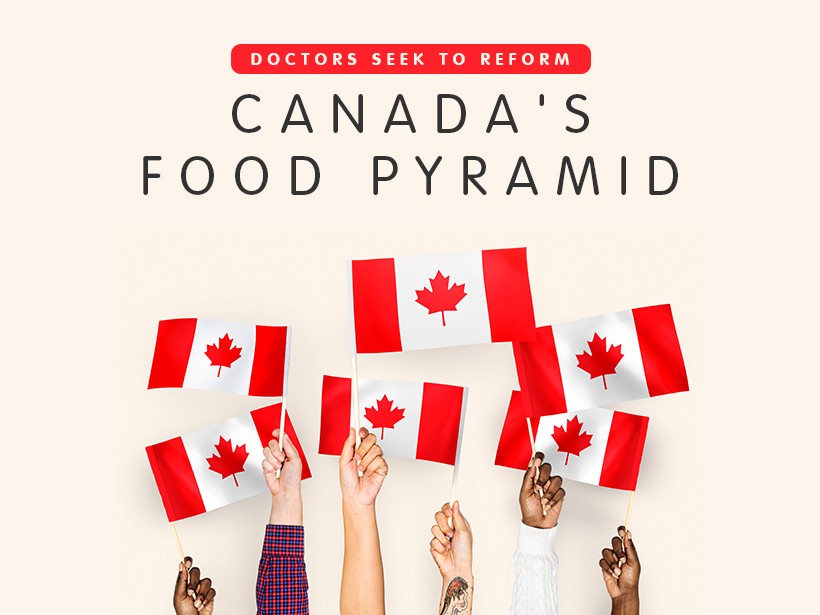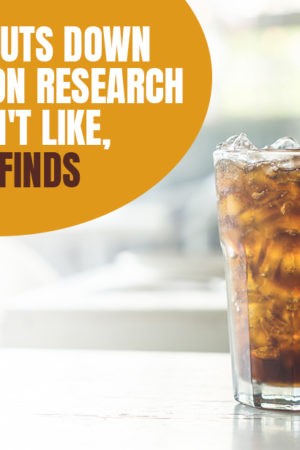Canadian pathologist Dr. Barbra Allen Bradshaw and a cohort of her peers have gone to war against Canada’s food guide.1 The group, called Canadian Clinicians for Therapeutic Nutrition, criticizes the food guide as a one-size-fits-all approach that relies on outdated data. Armed with the latest in nutritional research, the group is seeking to change the way Canadian officials view diet and health. Here are their three primary arguments.
The food guide falls short
Recently, Canadian health experts have urged their government to consider the health benefits offered by low-carb diets. Even so, the Canadian health bureaucracy seems content to ignore this advice, trotting out the same old recommendation to consume a diet of over 70 percent carbohydrates.
Dr. Carol Loffelman, a colleague of Dr. Bradshaw, hopes that her own story can help Canadians take a broader perspective in pursuing their health goals. Desiring to lose weight following a pregnancy, Dr. Loffelman took all the recommended steps. She curbed her fat intake, consuming primarily carbs; she laid off processed carbs, choosing whole wheat instead of white pasta; she added exercise and cut calories. Even so, she found that she only gained weight.
Both women set out on a mission to discover what was going on. They found “that much of the Food Guide’s advice was not supported by the most current science.” As a result, they ditched the food guide and, with it, the carbs. They switched to a low-carb, high-fat diet and began losing weight.
Cutting cals isn’t enough
The two doctors took their research and experience to the government bureaucracy. They adamantly protested against simplifying the weight loss formula to calorie cutting: “Stop using any language suggesting that sustainable weight control can simply be managed by creating a caloric deficit.” This, they claim, is in line with the latest research that reveals that cutting calories isn’t always enough—the type of food you consume has a direct impact on your metabolism.
Fats are not inherently bad
The group further argues that saturated fats, long blamed as a key contributor to heart disease, could be moving off the blame list. According to this group, recent studies indicate that these sorts of fats might not be a key driver in heart disease. In fact, they argue that “studies show that diets low in saturated fat, from sources such as beef and butter, are associated with heart disease.” These recent studies suggest that limiting saturated fats is no sure answer to heart disease—and, in fact, the problem likely lies elsewhere! Some studies have even suggested that going low-carb can help prevent heart failure.
The conclusion: more options for more people is better
The group proposes a system where the Canadian government recommends different types of diets for different people according to their needs. They have tried to convince officials that research supports other diets, including the high-fat/low-carb keto diet. Unfortunately, as of now, their arguments have gone nowhere. However, if Dr. Bradshaw and Dr. Loffelman have their way, Canadians in the future will have a food guide that shows them several different options for a healthy diet.
NUTRITIONAL DISCLAIMER
The content on this website should not be taken as medical advice and you should ALWAYS consult with your doctor before starting any diet or exercise program. We provide nutritional data for our recipes as a courtesy to our readers. We use Total Keto Diet app software to calculate the nutrition and we remove fiber and sugar alcohols, like erythritol, from the total carbohydrate count to get to the net carb count, as they do not affect your blood glucose levels. You should independently calculate nutritional information on your own and not rely on our data. The website or content herein is not intended to cure, prevent, diagnose or treat any disease. This website shall not be liable for adverse reactions or any other outcome resulting from the use of recipes or recommendations on the Website or actions you take as a result. Any action you take is strictly at your own risk.
- Keto Might Give Navy SEALs an Advantage - July 18, 2019
- The Primary Roles of Fat in Our Diets - July 8, 2019
- Low Carb Tech is Transforming Diabetes Treatment - June 21, 2019































